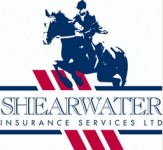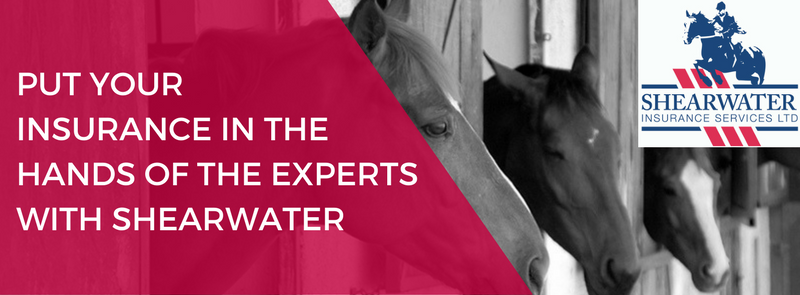Posted: 11th June 2018 | Back to news feed

If you have owned horses all your life or if you are purchasing your first four legged friend – horse insurance can be a total minefield. Whether or not to bother insuring and is it really worth it are often the questions that immediately come up, shortly followed by what is the best insurance for my horse and I. In this simple guide we look through the main points to horse insurance and what those words really mean.

Why do I need to insure my horse?
In this day and age insurance has become a necessity in life and even though you may pay out over many years and never make a claim, when faced with real problems and disasters, knowing that no matter what you are up against, financial crisis will not be among them is a reassuring comfort. Would any of us like to be faced with the dilemma of deciding whether or not we can afford to save the life of a much loved horse when the medical options are there but the costs prohibitive?
All Risks of Mortality
This is the starting point for almost all horse insurance policies and most companies will insist you take this cover as the core of your policy before adding other relevant sections. It covers death from accident, sickness or disease and normally theft as well. Once the horse reaches a certain age, which will vary from company to company, this will usually be restricted to death from accidental, external, visible injury only. This cover will compensate you for the destruction of a horse only if there are undisputable medical reasons for it and not if you decide to have the horse destroyed because you believe it to be in the animal’s best interests as it is unsuited to light hacking or retirement.
Economic Slaughter, Permanent Incapacity and Loss of Use
All three of these are phrases used to describe very similar types of cover. The idea of this insurance is that it will compensate the assured in the event that the horse becomes permanentlyincapable of fulfilling the purpose for which it is insured due to an accident, sickness or disease. Most, but not all companies will give policyholders the option of either keeping the horse in retirement or having the horse economically destroyed and will pay out different percentages of the horse’s value according to which option is taken. Companies do vary greatly in the way they handle this type of insurance and it is worthwhile checking how any policy you are considering deals with it. This type of cover can be very expensive depending on what the horse is being used for but can also be very useful for the competition horse in his prime.
Veterinary Fee Cover
This is the cover the vast majority of people require; often insuring their horses for a relatively small value just to have this protection. Cover can vary from company to company and although the most obvious points to check are the indemnity limit and the excess it is also worth checking what is covered as regards to alternative therapies and hospitalisation. As with the ‘All risks of Mortality’ cover, older horses will normally have their cover restricted. Some companies restrict the cover given to lower priced horses so if you are insuring a horse for less than his realistic market value ensure that you do not go to a value so low that cover is restricted. Many companies will now give you the option of taking a higher excess and reducing the premium as you can do with car insurance, this is often a good option if insuring several horses as the savings can be quite substantial.
Third Party Liability
Unlike with our cars there is no legal requirement to insure your horse against third party liability however it is the type of cover that is advisable for no horse owner to be without. In this increasingly litigious society no one is immune from having a claim made against them and although you may think your youngsters in the field can do no harm you would be surprised by the number of claims we get for damage to property caused by loose horses. Membership of some societies such as the BHS, British Eventing, British Dressage and the BSJA offer third party liability cover as a benefit of membership but do check that you have adequate cover in place before deciding that it is appropriate to exclude it from your horse insurance policy. Although claims are not common when they are made they can run into many hundreds of thousands of pounds.
Make sure you are covered
It is always worth taking the time and effort to ensure you have the right cover for you and discussing this fully with a specialist equestrian insurer, like Shearwater, is the best way to go about this. Be aware that many policies will require sight of pre purchase Vet Certificates and possible Veterinary History Printouts for your horse and without these full cover will not necessarily be in place. You can organise to have your horses insurance set up from the day you take ownership but do bear in mind that some policies also have a 14 waiting period before you can claim for illness. Alongside the above insurance covers which have been discussed you can also add on further extras like personal accident and tack making the policy personal to you and your horse.
For more information about Shearwater Insurance tel: 01992 718666, or visit:
www.shearwater-insurance.co.uk
The Equestrian Index newsfeed is compiled from articles submitted by advertising members and expresses the opinions of those members. Watsons Directories Ltd shall not be held liable for any inaccuracies or mis-statements therein.
